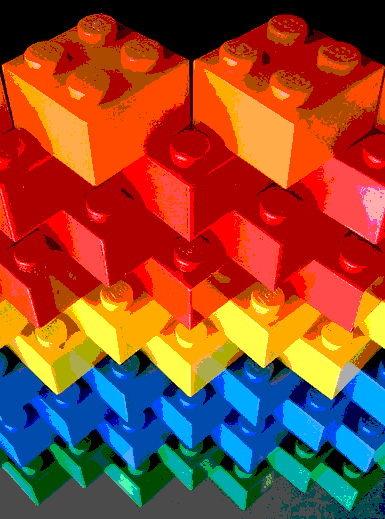LEGO helps med school links
 LEGO bricks are being used to build bridges between midwifery and medical students.
LEGO bricks are being used to build bridges between midwifery and medical students.
The colourful blocks are being deployed as icebreakers in professional workshops aimed at fostering better collaboration among future healthcare professionals.
In a study led by midwifery expert Liz McNeill from Flinders University and Dr Lyn Gum from UniSA, students from both disciplines participated in workshops designed to break down communication barriers and ease potential workplace tensions.
The students were tasked with a hands-on challenge: collaboratively building a birthing room using LEGO.
The playful exercise, adapted from the LEGO Serious Play methodology developed in the 1990s, encourages students to share insights and negotiate decisions - setting a foundation for future cooperation in clinical settings.
“By adapting the principles … during a series of workshops, we wanted to see if we could incorporate the use of the blocks as a way of breaking the ice,” McNeill explains.
“In hospital settings, there are often challenging power dynamics that exist between midwives and obstetricians, but if we start early enough, we can set our students up for future constructive collaborations.”
Held between 2018 and 2020, the workshops involved second- and third-year midwifery students from Flinders University and third- and fourth-year medical students preparing for obstetric rotations.
Pre- and post-workshop surveys showed that while students initially approached the exercise with skepticism, most came away with an appreciation for the activity's impact on communication and teamwork.
“We enjoyed listening to the myriad of conversations between the mixed groups of students,” Dr Gum said.
“Students shared their professional experiences, perspectives, and scopes of practice while trying to prioritise the placement of equipment and characters. We saw immediate benefits of the icebreaker, noting that students continued to chat with each other during the meal breaks.”
Feedback from the workshops revealed that the LEGO exercise facilitated open dialogue, mutual understanding, and a deeper appreciation of each other’s roles.
According to McNeill, many students reported feeling comfortable re-engaging in conversations with their medical counterparts during clinical placements later on.
“LEGO allows the brain to work differently by using creativity to share ideas, giving a ‘voice’ to everyone in the group,” McNeill says.
“Students found it to be a valuable experience, one that broke down perceived barriers and helped them see each other’s priorities and values.”
The full study is accessible here.








 Print
Print